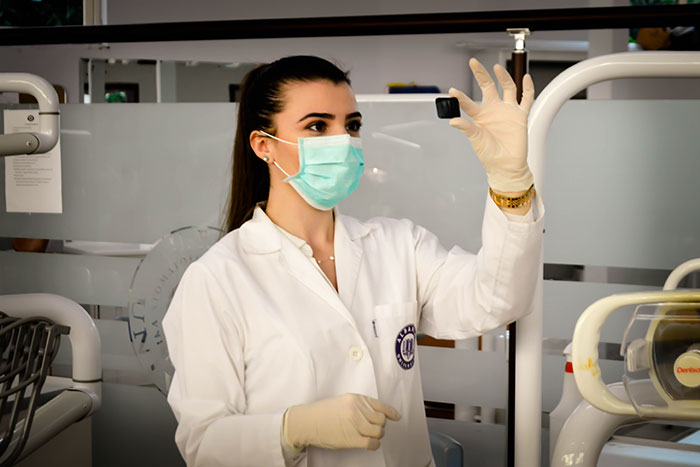The healthcare industry is a wide-ranging field that has many specialized jobs. Think beyond doctors, surgeons, and nurses and discover the unusual side of healthcare.

Nuclear Pharmacist
Nuclear Pharmacists are responsible for preparing and handling any form of medication that involves radioactive materials. Nuclear medication is typically used for the treatment of many forms of cancer as well as illnesses of the heart, lungs, bones, and brain. Nuclear Pharmacists compound, dispense and procure radioactive pharmaceuticals for patients.
Wound Care Specialist
If you don’t mind spending time in the emergency room and have a strong stomach for blood and gruesome injuries, consider becoming a Would Care Specialist. These healthcare professionals are trained to care for and treat all types of acute and chronic wounds. They evaluate and assess wounds, create treatment plans, give stitches, clean and bandage wounds, and monitor the healing process.
Wound Care Specialists educate patients about the wound healing process, and what preventative measures to take against developing an infection. Most clinics require Would Care Specialists to be licensed, registered nurses, physical therapists, occupational therapists, or related healthcare professionals. This specialized role requires wound-care certification.
Knowing basic first aid skills could save someone’s life one day. The American CPR Care Association offers a Nationally Accepted online CPR course for Adult, Child, and Infant Online CPR certification. After the successful completion of a one-to-two hour-long CPR class, you will hold a CPR Certification Card that will be valid for two years. All of CPR Care’s CPR certification courses are led by OSHA trained instructors current on AHA guidelines.
Medical Illustrator
Ever wonder who is responsible for the charts and diagrams in the doctor’s office? Medical Illustrators create drawings, graphic designs, illustrations, and graphic representations of body parts, cellular bodies, disabilities, and sicknesses. They create graphic representations using computer design programs, traditional drawing techniques, 3D models, and figurines. Medical Illustrators need to have in-depth knowledge about human anatomy or biological sciences in addition to a fine arts degree. A Bachelor’s degree and sometimes a Master’s degree in Medical Illustration are required as well.
Informatics Specialist
There is a growing demand for Informatics Specialists as the healthcare industry transitions from paper medical records to electronic medical records. Informatics Specialists are responsible for translating medical records into usable data in electronic record-keeping systems. Part of translating medical data into usable information means spotting trends in healthcare by creating unique software and tracking programs.
Most Informatics Specialists hold a degree in Biology, Genetics, or Pre-Med, and have a strong background in Computer Science and Programming. Handling sensitive patient information means managing information databases according to compliance regulations and laws.
Howard Fensterman is a renowned New York lawyer with experience handling professional misconduct and complex health care cases. He is the founder and managing partner of the law firm of Abrams, Fensterman, Fensterman, Eisman, Formato, Ferrara, Wolf & Carone, LLP. The firm practices health care law, malpractice defense, complex commercial litigation, and matrimonial law. Some of the attorneys at Abrams Fensterman also practice estate planning, white-collar criminal law, corporate law, and real estate law.
Art Therapist
Art Therapists work directly with patients to help them overcome various health issues through creative expression. This form of therapy is effective for patients who struggle with properly expressing themselves and communicating emotions. Art Therapists guide patients through creative activities that are fun, engaging, and therapeutic. It’s also a great way for healthcare professionals to assess if patients are suffering from psychiatric disorders or issues.
Art Therapists are board-certified healthcare professionals who hold master’s degrees in Art Therapy. A degree in Psychology or a Master’s degree in Family Therapy is also a common background for those pursuing Art Therapy.
